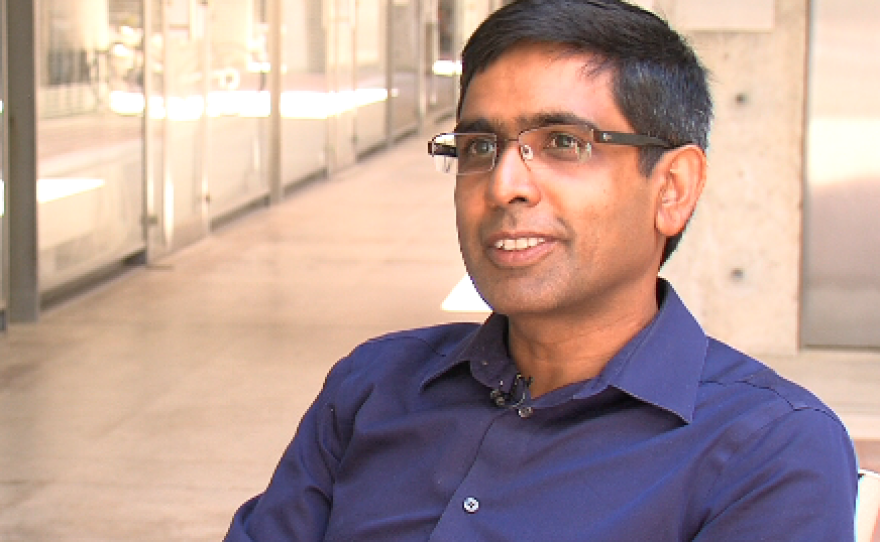Scientists at the Salk Institute in La Jolla were able to reverse obesity and diabetes in mice, just by limiting when they had access to food each day.
A pair of studies published Tuesday in Cell Metabolism suggest the timing of meals could be as important as what's on the plate.
The study was led by Satchin Panda, an associate professor at the Salk Institute. In 2012, he and his colleagues showed that limiting feeding to eight hours per day conferred health benefits to mice, even when they weren't necessarily eating a healthy diet.
"It was very extreme," Panda said. For the previous study, mice got more than half their calories from fat. "It's almost like putting humans on ice cream and nachos all the time."
In Panda's recent experiments, mice were fed a variety of diets, some high in sugar. The researchers didn't cut calories for the mice, but they did put them on a strict schedule. For Panda's latest studies, feeding was restricted to a window of nine to 12 hours, meaning mice fasted for at least half the day.
When their feeding was time-restricted, mice with preexisting obesity and diabetes saw their conditions improve. And their gut bacteria — the colonies of tiny organisms promoting healthy metabolism — became more diverse and varied throughout the day.
Even when he let the mice binge all day on weekends, they still showed improvement, Panda said.
"Occasional cheating is OK," he said. "But if we continue that over several days, then all the benefits disappear."
Before electric light, it was difficult for humans to prepare and consume food in the dark of night. Panda said now, there's nothing preventing many Americans from eating during 15 to 16 hours or more each day.
Is that why we're getting fatter and sicker? Panda is hesitant to say before running human trials. But his research underlines the important role daily rhythms play in human health and what can go wrong when those rhythms are disrupted.






